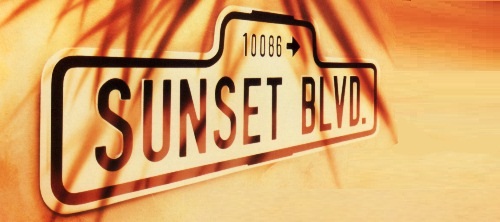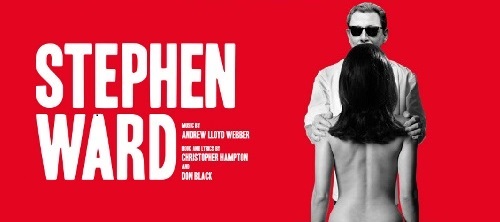Pas de biographie disponible.
Compositeur Musique additionelle Librettiste Parolier Metteur en scène Chorégraphe Producteur création Producteur version

Musical
Musique: Andrew Lloyd Webber • Paroles: Christopher Hampton • Don Black • Livret: Christopher Hampton • Don Black • Production originale: 21 versions mentionnées
Dispo: Résumé Synopsis Commentaire Génèse Liste chansons
Vidéos:
Genèse: From approximately 1952 to 1956, Gloria Swanson worked with actor Richard Stapley (aka Richard Wyler) and cabaret singer/pianist Dickson Hughes on a musical adaptation originally entitled Starring Norma Desmond, then Boulevard! It ended on a happier note than the film, with Norma allowing Joe to leave and pursue a happy ending with Betty. Paramount originally had given Swanson verbal permission to proceed with the musical, but there had been no formal legal arrangement. On 20 February 1957, Paramount executive Russell Holman wrote Swanson a letter in which he asked her to cease work on the project because "it would be damaging for the property to be offered to the entertainment public in another form as a stage musical." In 1994, Hughes incorporated material from the production into Swanson on Sunset, based on his and Stapley's experiences in writing Boulevard!. A recording of the entire score, which had been housed in the Gloria Swanson archives at the University of Texas, was released on CD in 2008. In the early 1960s, Stephen Sondheim outlined a musical stage adaptation and went so far as to compose the first scene with librettist Burt Shevelove. A chance encounter with Billy Wilder at a cocktail party gave Sondheim the opportunity to introduce himself and ask the original film's co-screenwriter and director his opinion of the project (which was to star Jeanette MacDonald). "You can't write a musical about Sunset Boulevard," Wilder responded, "it has to be an opera. After all, it's about a dethroned queen." Sondheim immediately aborted his plans. A few years later, when he was invited by Hal Prince to write the score for a film remake starring Angela Lansbury as a fading musical comedienne rather than a silent film star, Sondheim declined, citing his conversation with Wilder. When Lloyd Webber saw the film in the early 1970s, he was inspired to write what he pictured as the title song for a theatrical adaptation, fragments of which he instead incorporated into Gumshoe. In 1976, after a conversation with Hal Prince, who had the theatrical rights to Sunset, Lloyd Webber wrote "an idea for the moment when Norma Desmond returns to Paramount Studios"; Lloyd Webber did no further work on the play until after 1989's Aspects of Love. At that point, Lloyd Webber "felt it was the subject [he] had to compose next", though by February 1990 he had announced plans to turn Really Useful Group private so he could "make movies rather than musicals." In 1991, Lloyd Webber asked Amy Powers, a lawyer from New York with no professional lyric-writing experience, to write the lyrics for Sunset Boulevard. Don Black was later brought in to work with Powers; the two wrote the version that was performed in 1991 at Lloyd Webber's Sydmonton Festival. This original version starred Ria Jones as Norma but it was not a success. A revised version, written by Black and Christopher Hampton had a complete performance at the 1992 Sydmonton Festival, now with Patti LuPone playing Norma, and "met with great success". Lloyd Webber borrowed several of the tunes from his 1986 mini-musical Cricket, written with Tim Rice, which had had an acclaimed run at Windsor Castle and later at the Sydmonton Festival. Sunset had its World Premiere at London's Adelphi Theatre on July 12, 1993, with Patti LuPone (Norma Desmond) and Kevin Anderson (Joe Gillis) starring and Daniel Benzali playing Max. The opening had been delayed slightly due to complex technical problems which plagued the show during development. Press interest had been unprecedented ever since the project was announced, but initial reviews were mixed. This did not stop the show receiving record advance bookings, however. The American Premiere took place on December 9, 1993 not on Broadway, but in Los Angeles at the Shubert Theatre. This time the show starred Glenn Close (Norma Desmond), Alan Campbell (Joe Gillis), Judy Kuhn (Betty Schaefer) and George Hearn (Max von Mayerling). Soon, it was decided that Close should open the Broadway production, with Faye Dunaway replacing her in LA. This caused great problems, as Patti LuPone had been promised the leading role on Broadway. She filed a million dollar lawsuit, feeling she had been badly let down. When Faye Dunaway came to rehearse for the LA show, it quickly became clear that her singing voice was not up to standard, and she too filed a court case (both were settled by out-of-court agreements). Without a leading lady, the LA production was closed when its cast moved to New York. On November 17 1994, Sunset Boulevard opened on Broadway at the Minskoff Theatre, with Close, Campbell and Hearn reprising their roles and Alice Ripley joining as Betty Schaefer. The show had the highest advance in Broadway history ($37.5 million in ticket sales). Sunset Boulevard gained the theatre's highest honour when it received seven Tony Awards in 1995, including Best Musical, Best Leading Actress, Best Score, Best Lighting and Best Scenic Design. The improvements made to the show for its American opening were incorporated into the London production in 1994, and it closed for a short while whilst these were implemented, reopening with a new star - Betty Buckley. Divas Rita Moreno, Elaine Paige, Petula Clark and Karen Mason were all to play the title role on London and/or Broadway. Sunset closed on Broadway on March 22nd 1997. The London production closed on the 5th April 1997 with Petula Clark and Graham Buckley playing the title roles. The Canadian production opened on October 15, 1995 starring Diahann Carroll (Norma), Rex Smith (Joe) and Walter Charles (Max), but despite public interest, closed after a relatively short run. The First US National Tour of Sunset Boulevard premiered in June 1996 with Linda Balgord in the starring role, but the tour ended in Chicago in 1997, despite having had plans to tour for at least a further two years. The Broadway production - flying mansion and all - had been recreated for this tour, and the sheer expense of moving the production around eventually proved its Achilles heel. The show opened in Melbourne, Australia in October 1996 but it closed in 1997. Plans for an entirely new production to play the Sydney Opera House in November 1999 did not come to fruition. Sunset Boulevard also played at Niederhausen near Frankfurt, Germany in a theatre specially constructed to house the show. The show was translated into German, and seemed to adapt very well. The production starred US jazz singer Helen Schneider, and TV-personality Daniela Ziegler during its respectable 2 1/2 year run; and was seen by nearly 1 million people. German Sunset had been set to close in 1997 alongside the London and Broadway productions, but it was saved by Peter Buck, a building contractor who bought the German rights to the musical from the Really Useful Group. He attempted to cut back on the running costs of the show, but unfortunately it still proved financially unsound. It closed on May 3rd 1998 with Sue Mathys (Norma Desmond) and Yngve Gasoy Romdal (Joe Gillis) in the lead roles. A new US Touring Production opened in December 1998 in Pittsburgh, starring Petula Clark. This was a new production, with entirely new scenic design and direction, which was the cause of much controversy among fans of the show, many of whom saw it as highly inferior to the lavish original. The tour ran for over a year, however, and was well received by press all over the US.
Résumé: Impoverished screenwriter Joe Gillis stumbles upon the stuffy mansion of faded filmstar Norma Desmond by chance. She initially employs him to edit her script for a movie of Salome, which she plans to use as her comeback vehicle, demanding he reside at her home whilst he works. She soon falls hoplessly in love with him, and persuades him to stay on as her live-in lover, much to the shock of her loyal butler (and ex-husband) Max. Joe finds himself torn away from his old lifestyle and friendships. Meanwhile, Norma has proceeded with her plans for her return to the screen, and visits Paramount studios to seek Cecil B. DeMille's help. Away from Norma's glare, however, Joe collaborates in secret with young studio employee Betty Schaefer, and they soon declare their love for one another. Torn between his life of luxury supplied by Norma, and his genuine affection for Betty, Joe decides to leave Hollywood and start life afresh in his native Ohio. Norma, in a fit of shock and rage, shoots Joe as he leaves her home on Sunset Boulevard. In the final scene, she descends into insanity as press and police invade her home, and, believing herself to be back on the set of one of her movies, descends the grand staircase in ger mansion with the immortal words: "and now, Mr DeMille, I'm ready for my close-up.."
Création: 12/7/1993 - Adelphi Theatre (Londres) - représ.

Musical
Musique: Andrew Lloyd Webber • Paroles: Christopher Hampton • Don Black • Livret: Christopher Hampton • Don Black • Production originale: 1 version mentionnée
Dispo: Résumé Génèse
Vidéos:
Genèse: In February 2012, Webber first revealed in an interview with Chris Evans that he was considering working on a show based on the Profumo Affair. A first reading of the musical was held in London in early 2013, with its first public outing coming in March, with Milos Karadaglic performing the title song from the show on an ITV special Andrew Lloyd Webber: 40 Musical Years. The track was later released as a digital download. Officially confirmed on 28 June 2013, producers announced that the show would play the Aldwych Theatre, with tickets going on sale immediately. The show has a book with lyrics by Don Black and Christopher Hampton and is directed by Richard Eyre, with choreography by Stephen Mear, set design by Rob Howell, lighting design by Peter Mumford and sound by Paul Groothuis. Production history West End (2013) Stephen Ward is expected to begin previews on 3 December 2013, at the Aldwych Theatre, London, before holding its official opening night on 19 December. On 6 September 2013, full casting was announced with Alexander Hanson playing the title role of Stephen Ward, Charlotte Spencer as Christine Keeler, Joanna Riding as Valerie Hobson, Charlotte Blackledge as Mandy Rice Davies, Anthony Calf as Lord Astor, Daniel Flynn as John Profumo, Ian Conningham as Ivanov, Chris Howell as Murray, Ricardo Coke Thomas as Lucky Gordon and Wayne Robinson as Johnny Edgecombe.
Résumé: 1963. The scandal that shocked society. Stephen Ward deals with the victim of the Profumo Affair - not, as is widely supposed, John Profumo himself, the disgraced Minister for War, nor even the fatally wounded Conservative government of Harold Macmillan, but the society osteopath whose private libertarian experiments blew up in his own and everyone else's face. ' In a trial as emblematic to the twentieth century as Oscar Wilde's was to the nineteenth - from which he was the only protagonist to emerge with some dignity and honour - Ward became the targeted scapegoat of a furiously self-righteous Establishment. By no means a hero, he was a reluctant martyr, thanks to an unholy alliance between press and police of a kind we can all too readily recognise today; inadvertently, he was the hinge between two worlds and the harbinger of a revolution in manners, music and morals when the ordered, stuffy, respectful universe of the fifties gave way to the classless, truculent, unstoppable sixties.'
Création: 19/12/2013 - Aldwych Theatre (Londres) - représ.

.png)
.png)





